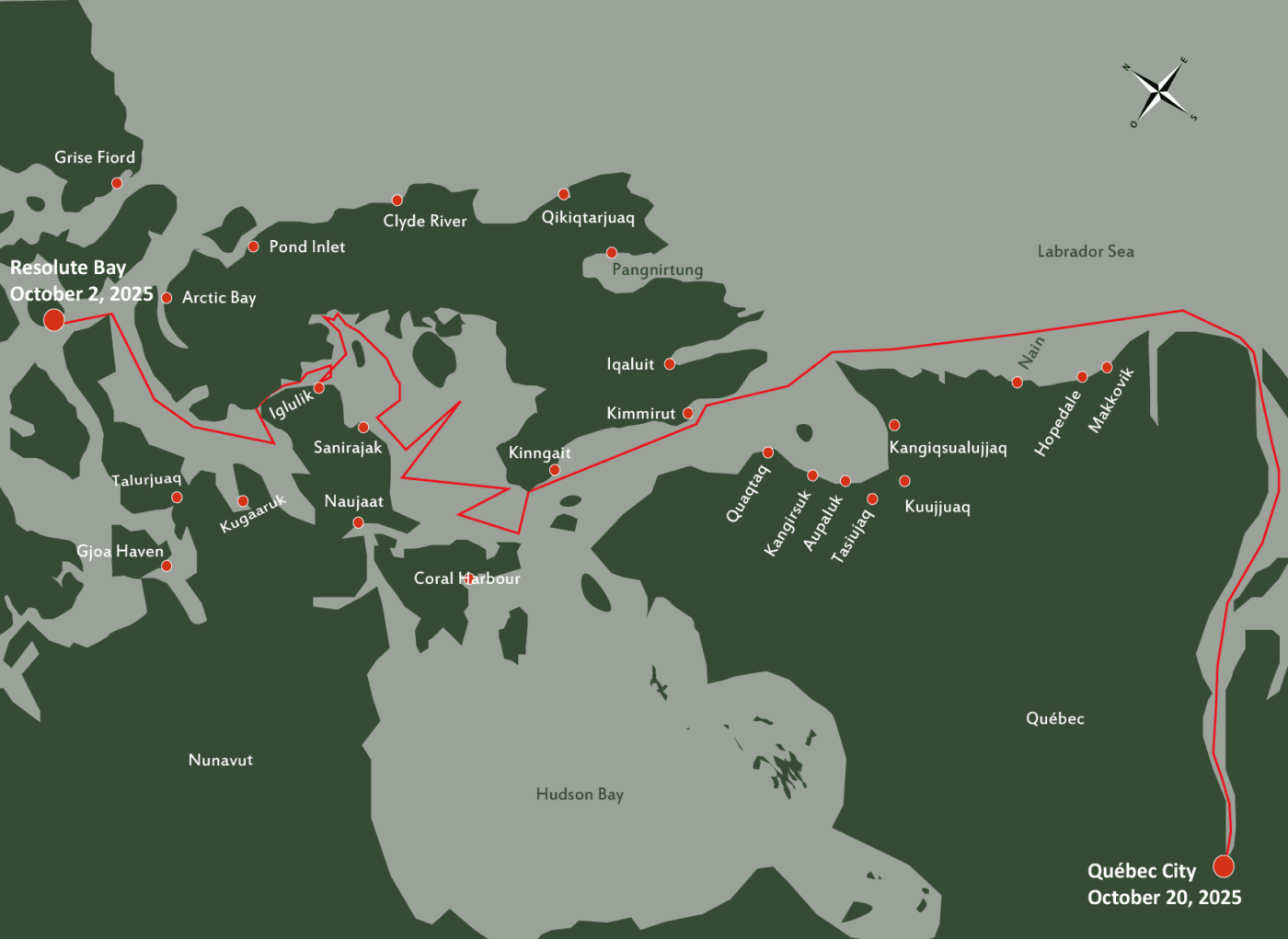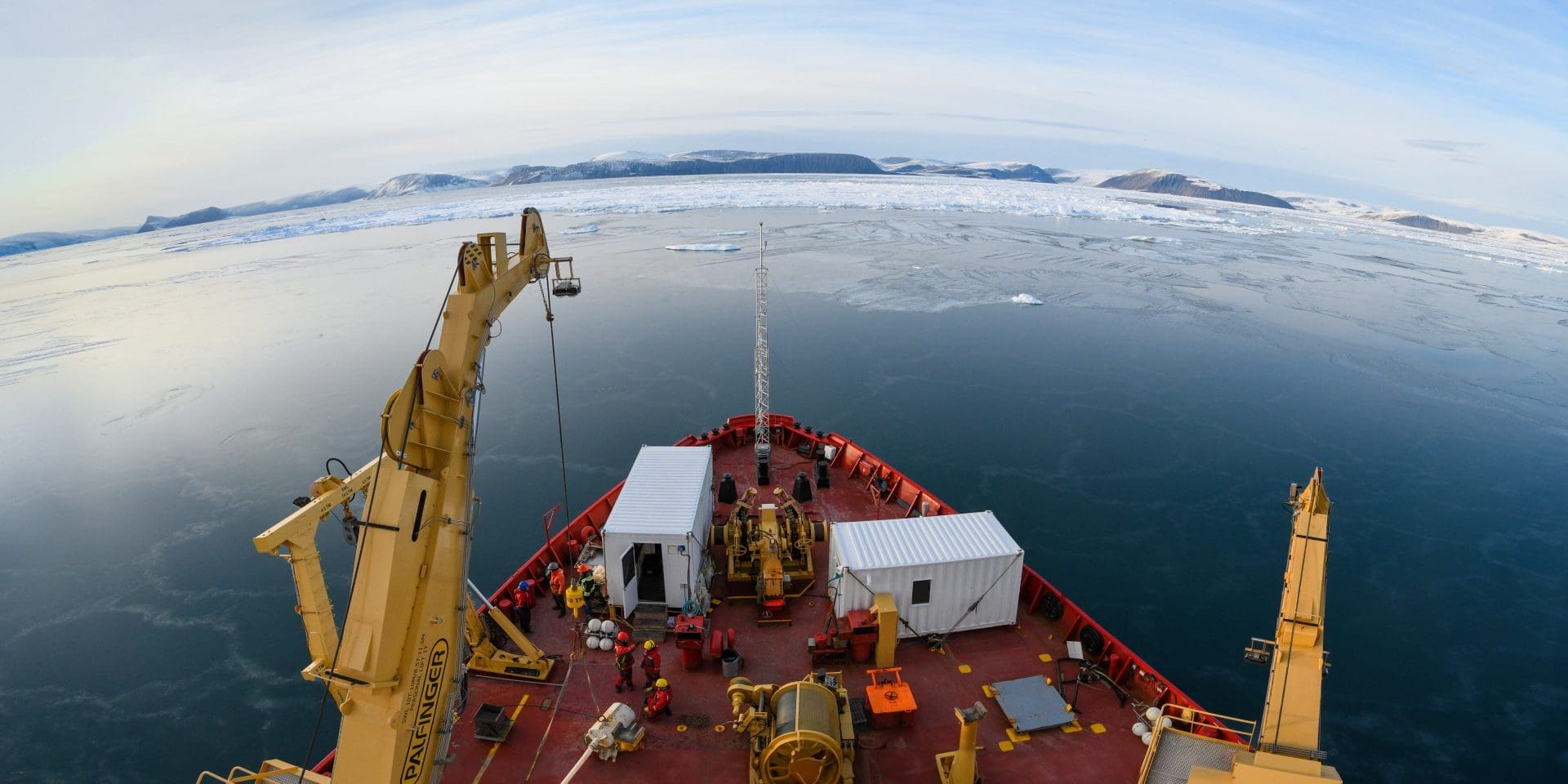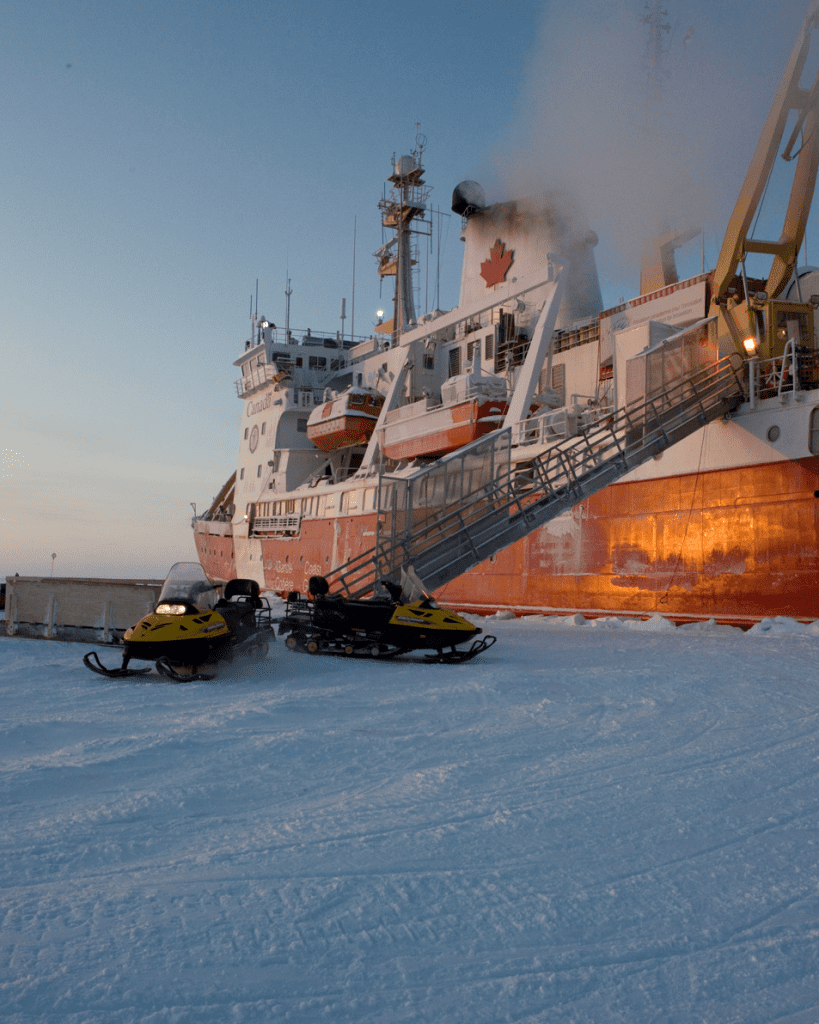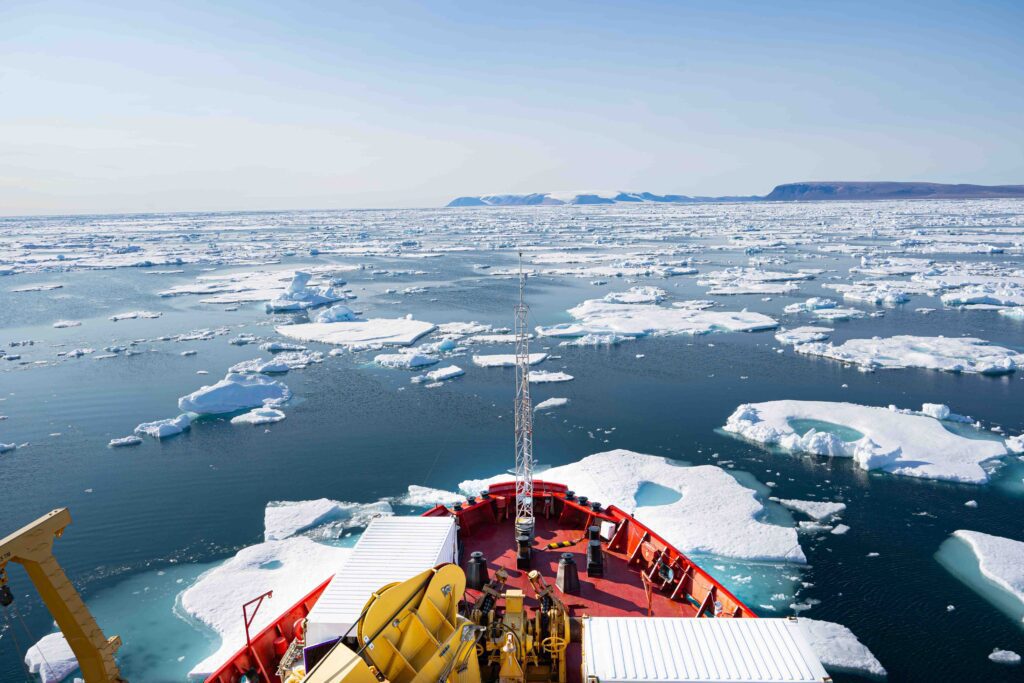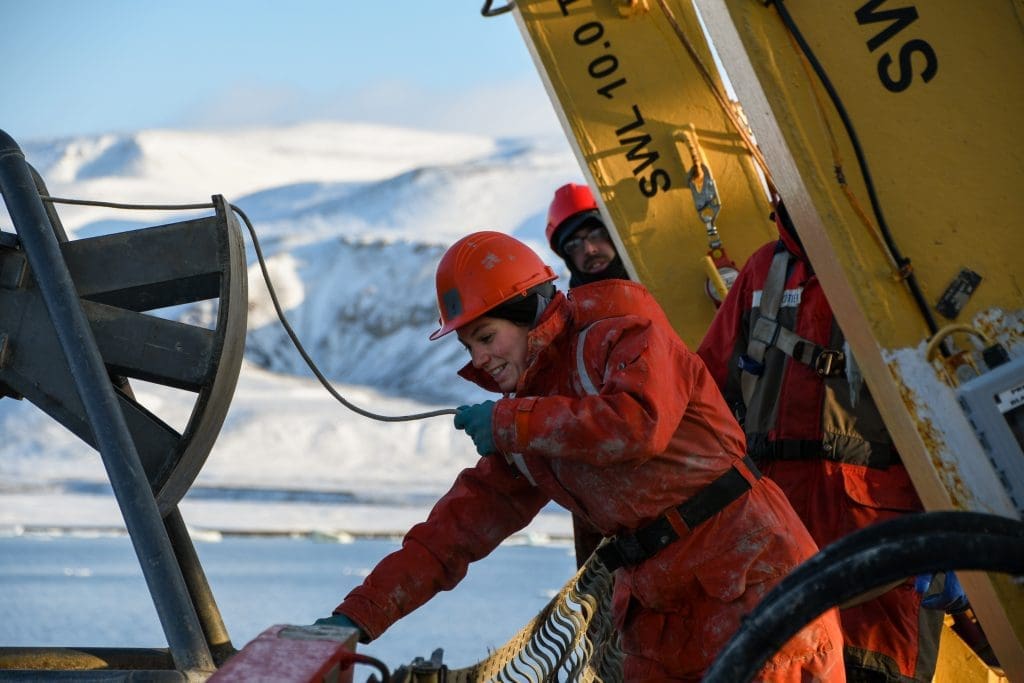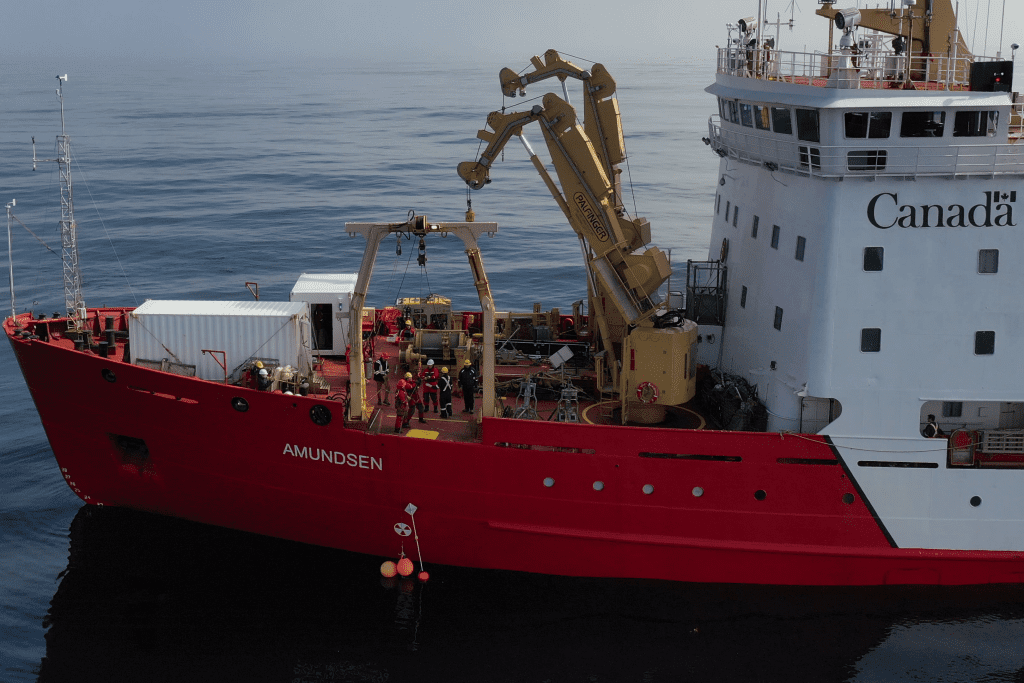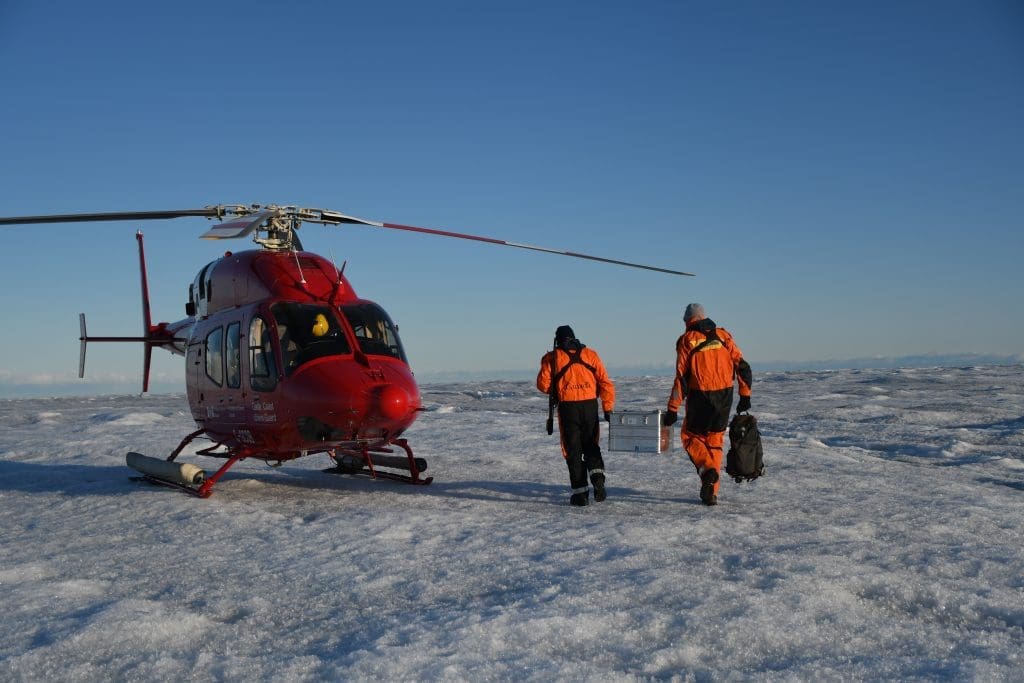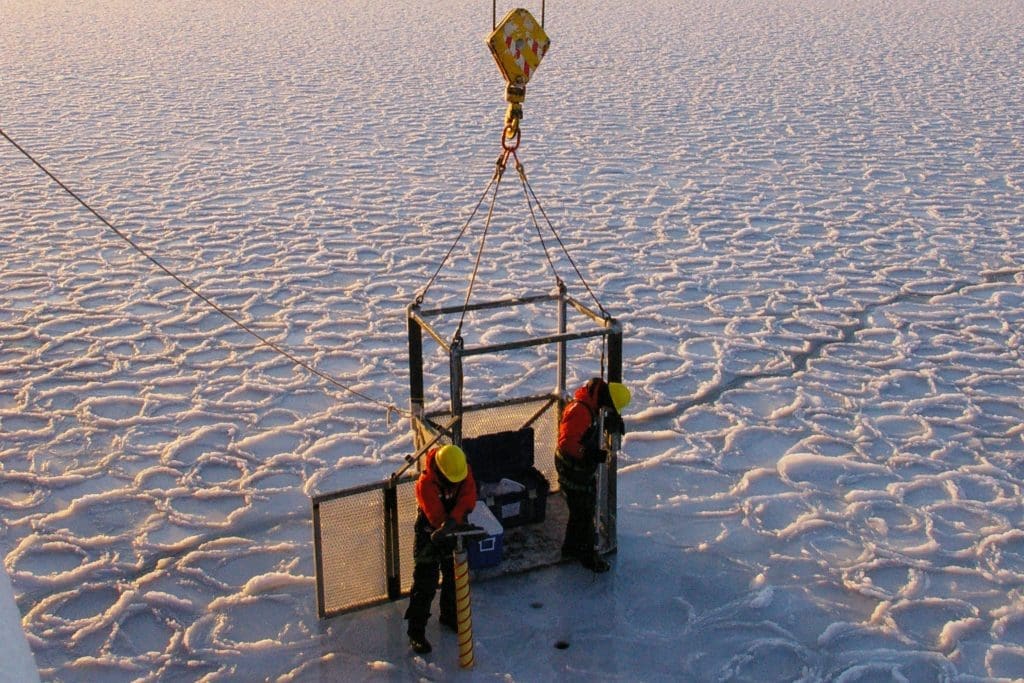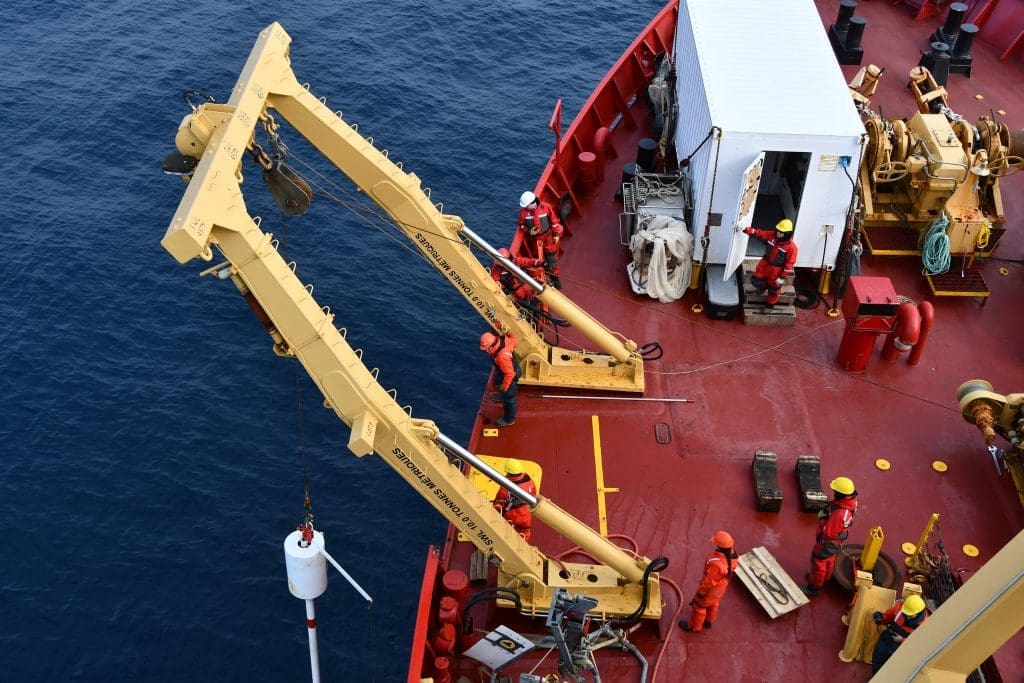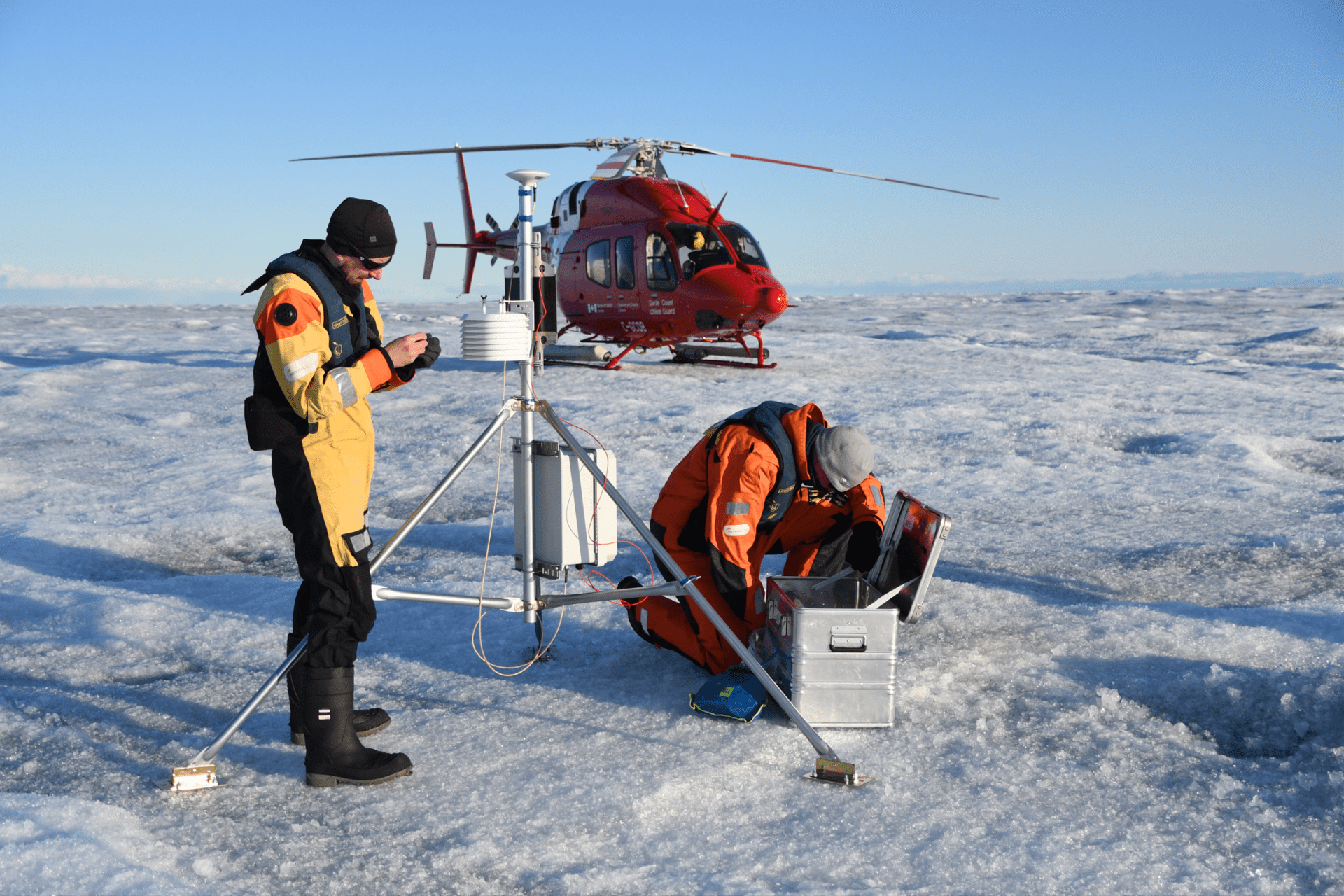2025 Amundsen Expedition
On June 27th the Canadian research icebreaker CCGS Amundsen will leave Québec City for its annual expedition to the Arctic Ocean. Numerous scientists from national and international research teams will board the ship to study the marine and coastal environments of the Canadian and Greenlandic Arctic.
Leg 1 – Mecatina Trough Survey
June 27 (Québec City) to July 10 (Goose Bay)
This year, the first Leg of the 2025 Amundsen Expedition will welcome a new program led by Fisheries and Oceans Canada, Memorial University and UQAR, the Mecatina Trough Survey. This program aims to better understand unique habitats and ecosystems in the St. Lawrence Gulf and to collect baseline information of the Mecatina Trough. Using the remotely operated vehicle (ROV) on the CCGS Amundsen, the scientific teams will survey 6 sites to describe benthic communities and sea floor habitats. They will also sample water, plankton and fish to describe and characterize biological productivity and diversity and the environmental conditions in the Trough.
The teams onboard will disembark the ship after 13 days of science on July 10th in Goose Bay.
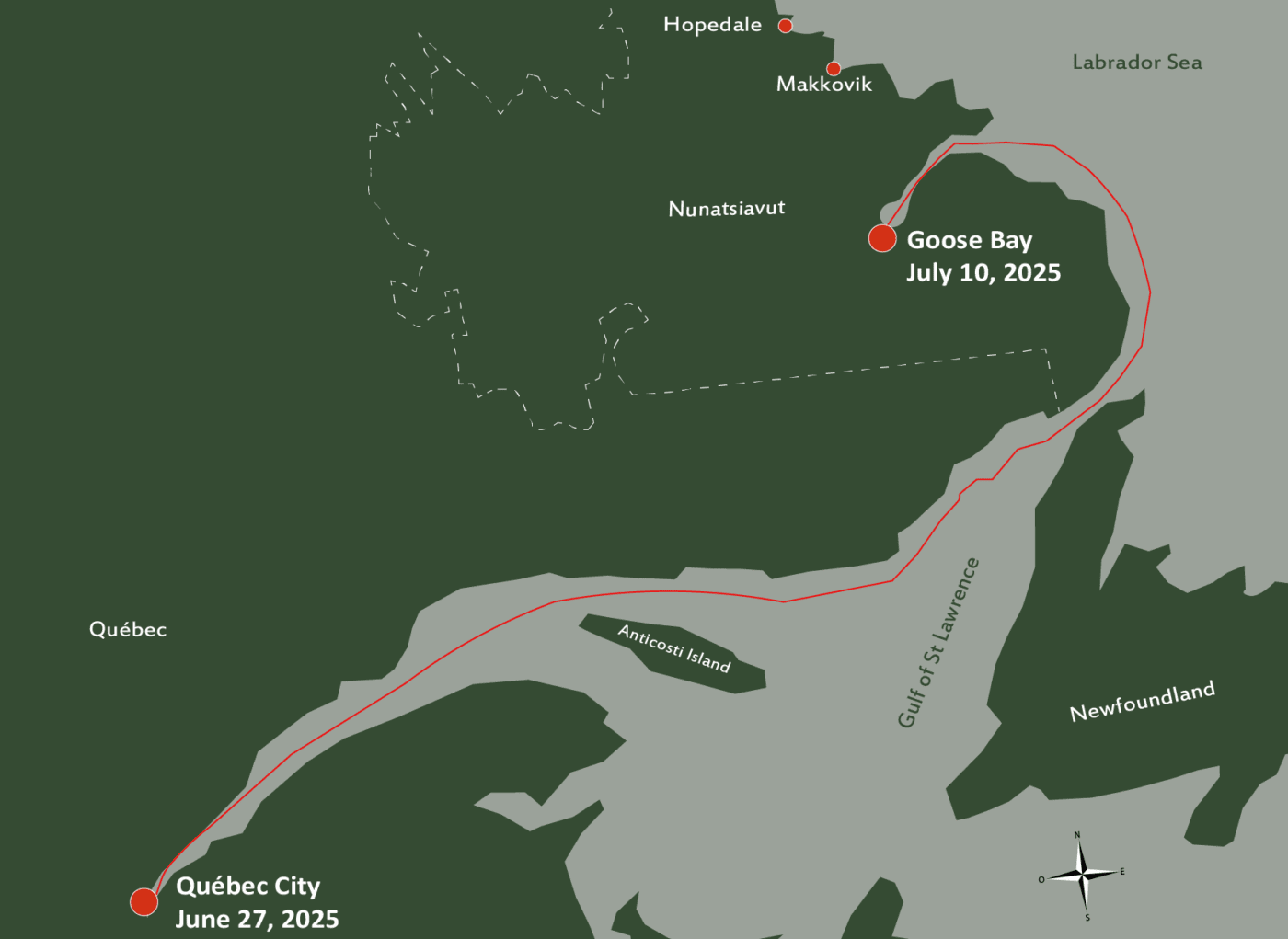
Leg 2 – Imappivut, DFO Benthic Refuges
July 10 (Goose Bay) to August 7 (Iqaluit)
Scientists of the second Leg will board the CCGS Amundsen on July 10th in Goose Bay for 28 days of science at sea. This crew change in Goose Bay will give an opportunity to conduct important scientific operations in Lake Melville and surroundings, an area never studied by the Amundsen in the past. The ship will then sail along the Nunatsiavut coast for various operations including further ROV exploration and surveys at Makkovik Hanging Gardens and The Sentinel sites.
This Leg will include the Imappivut and DFO Benthic Refuges programs gathering scientists from Fisheries and Oceans Canada, the Nunatsiavut Government, and other government and academic partners. The Imappivut program aims to understand the distribution of Vulnerable Marine Ecosystems (VMEs) in the marine and coastal waters of Nunatsiavut, the Labrador Sea and adjacent areas. To learn more about this program and its foundation, the Nunatsiavut Government suggests you to read these official documents.
The DFO Benthic Refuges program focuses on monitoring sensitive benthic areas within the Eastern Arctic Marine Refuges such as Hatton Basin, Davis Strait, and Disko Fan Conservation Areas.
Leg 2 of the 2025 Amundsen Expedition will also include a science day at Makkovik organized by the Nunatsiavut Government and Makkovik community members in collaboration with Amundsen Science. This day is an opportunity for scientists onboard and community members to meet and share their knowledge and stories.
This Leg will end with a crew change in Iqaluit on August 7th.
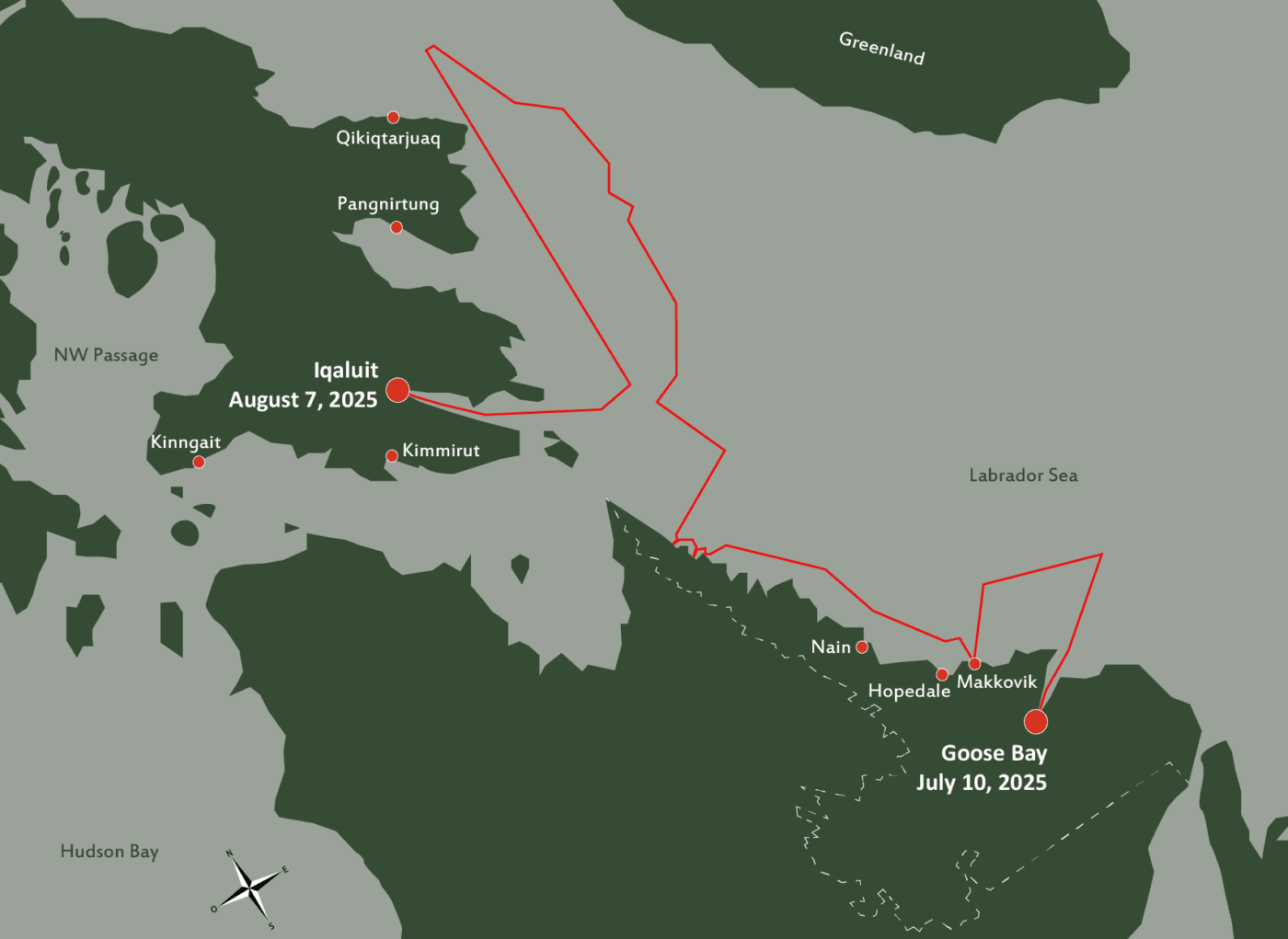
Leg 3 – KEBABB and TCA
August 7 (Iqaluit) to September 4 (Resolute Bay)
The third Leg of this year’s field season will start on August 7th in Iqaluit and will end on September 4th in Resolute Bay. The 28-day cruise will support returning programs KEBABB and Transforming Climate Action (TCA). Operations are planned at numerous stations along 9 transects in Baffin Bay and around Qikiqtarjuaq.
The KEBABB (Knowledge and ecosystem-based approach in Baffin Bay) program is focused on understanding the connexions within the atmosphere-ice-ocean system, and how ongoing climate changes impact marine ecosystems. Gathering scientists and professionals from Fisheries and Ocean Canada, Universities and from the Inuit Learning and Development Program, KEBABB has developed an ambitious operations plan this year with new transects in Davis Strait.
To follow on last year’s operations, the TCA program will conduct scientific sampling in fjords south of Qikiqtarjuaq. Including sediments, biological and water sampling, the TCA operations aim to collect data and better constrain the role of the ocean in the evolution of the Arctic climate and ecosystems.
A science day will be organized before the crew change of Leg 3, September 3nd in Resolute Bay.
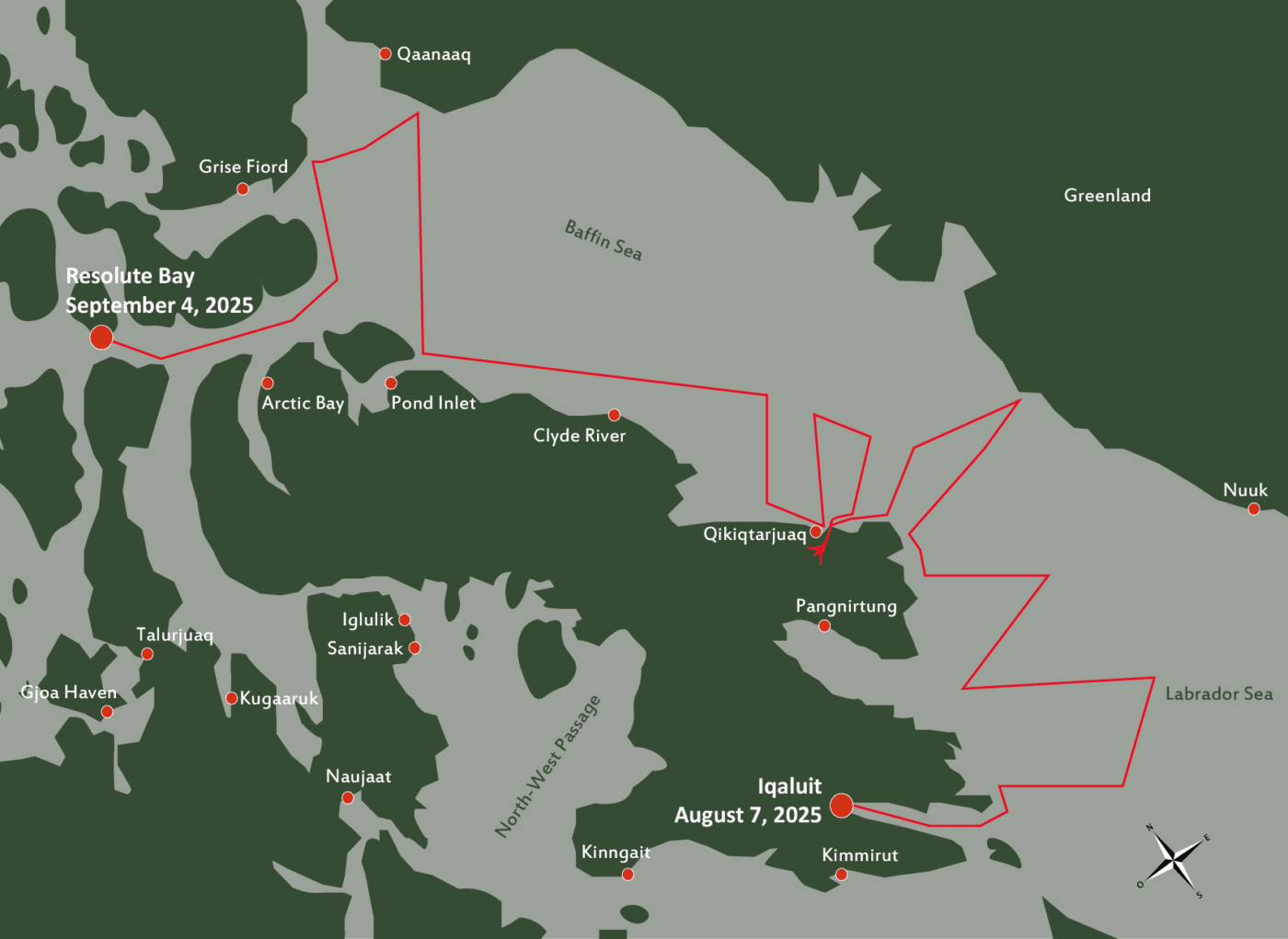
Leg 4 – Queen Elizabeth Islands and Tuvaijuittuq Survey
September 4 (Resolute Bay) to October 2 (Resolute Bay)
The CCGS Amundsen will then navigate through northern waters for the fourth Leg of the 2025 Amundsen Expedition.
The Queen Elizabeth Islands Survey will be the main program of Leg 4. Based on previous research in Tuvaijuittuq Marine Protected Area, this program aims to better understand freshwater pathways, ice-ocean interactions and changing ice conditions around Queen Elizabeth Islands. Due to the presence of old and thick ice cover, this area is difficult to access and has been little studied. The QEI Survey hopes to uncover more through multidisciplinary studies in straits, fjords and on glaciers in the Northern part of the islands while operations on thick old sea ice, Arctic waters inflow and outflow will take place in the Southern region of the islands.
After 28 days sailing and sampling the Queen Elizabeth Islands, scientists and the CCGS Amundsen crew will disembark on October 2nd in Resolute Bay. A science day will be organized on October 2nd in Resolute Bay to end this Leg with valuable exchanges and discussions with community members.
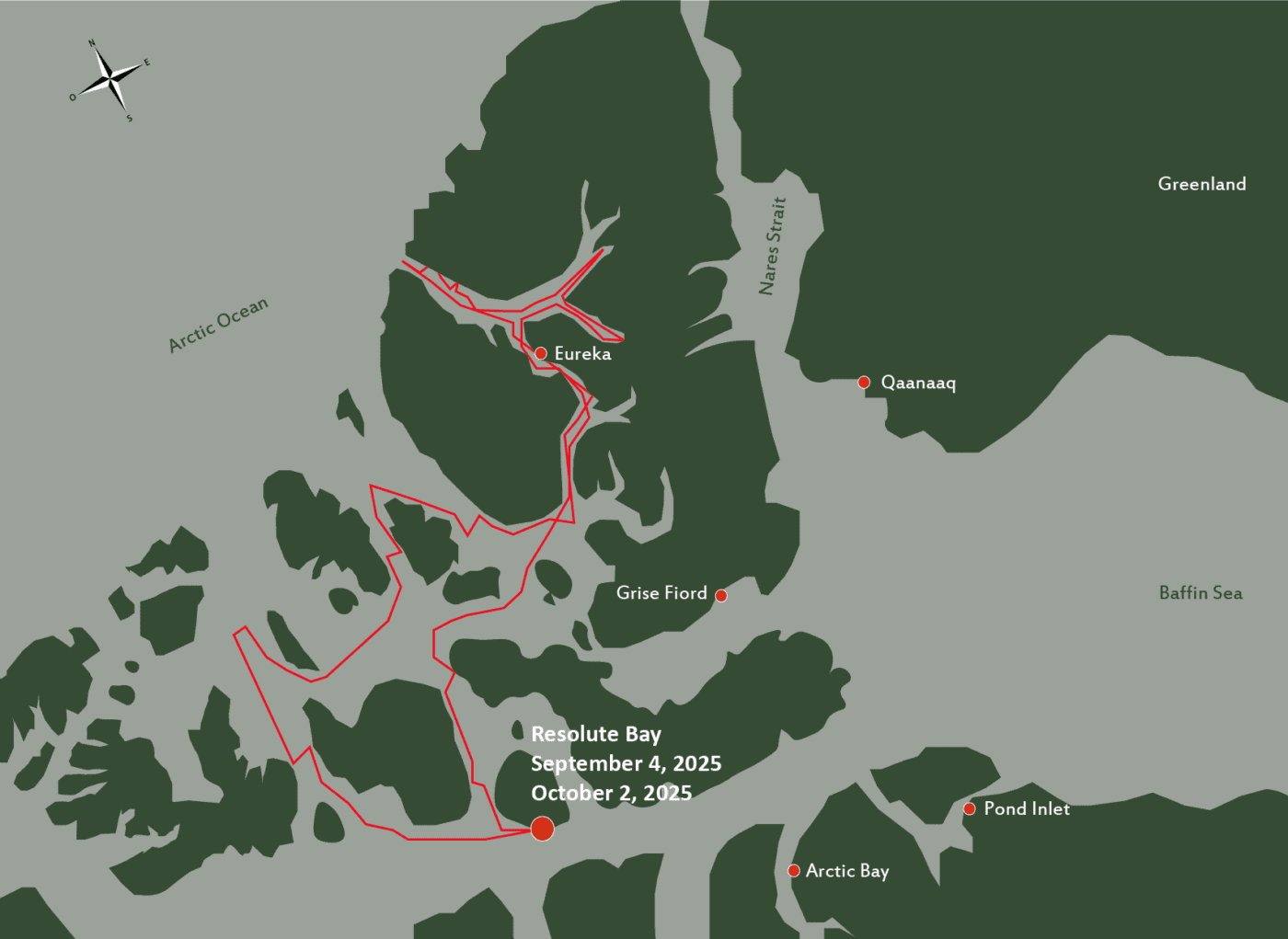
Leg 5 – FoxSIPP
October 2 (Resolute Bay) to October 20 (Québec City)
Scientists of the fifth and last Leg of the expedition will board the Amundsen on October 2nd in Resolute Bay for 17 days of science at sea.
A science day is schedule for October 6th in Iglulik. Meetings with organisations of the community are planned as well as activities at the school are planned.
The Amundsen will sail back while conducting sampling activities in various locations, including the Gulf of Boothia, Fury and Hecla Strait, Foxe Basin, Hudson Strait, and Labrador Sea.
The major program onboard this Leg is the FoxSIPP-2 (Foxe Basin Sea Ice Pump) program. The FoxSIPP program aims to investigate the chemistry of the deep water that is formed annually in Foxe Basin and drains into Foxe Channel. At the request of the HTA, the teams onboard will also carry out operations in Steensby Inlet. River sampling will be carried out during this Leg using the ship’s helicopter in Northern and Western Foxe Basin.
The Leg 5 of 2025 Amundsen Expedition will end on October 20th in Québec City and followed by the scientific demobilization.
